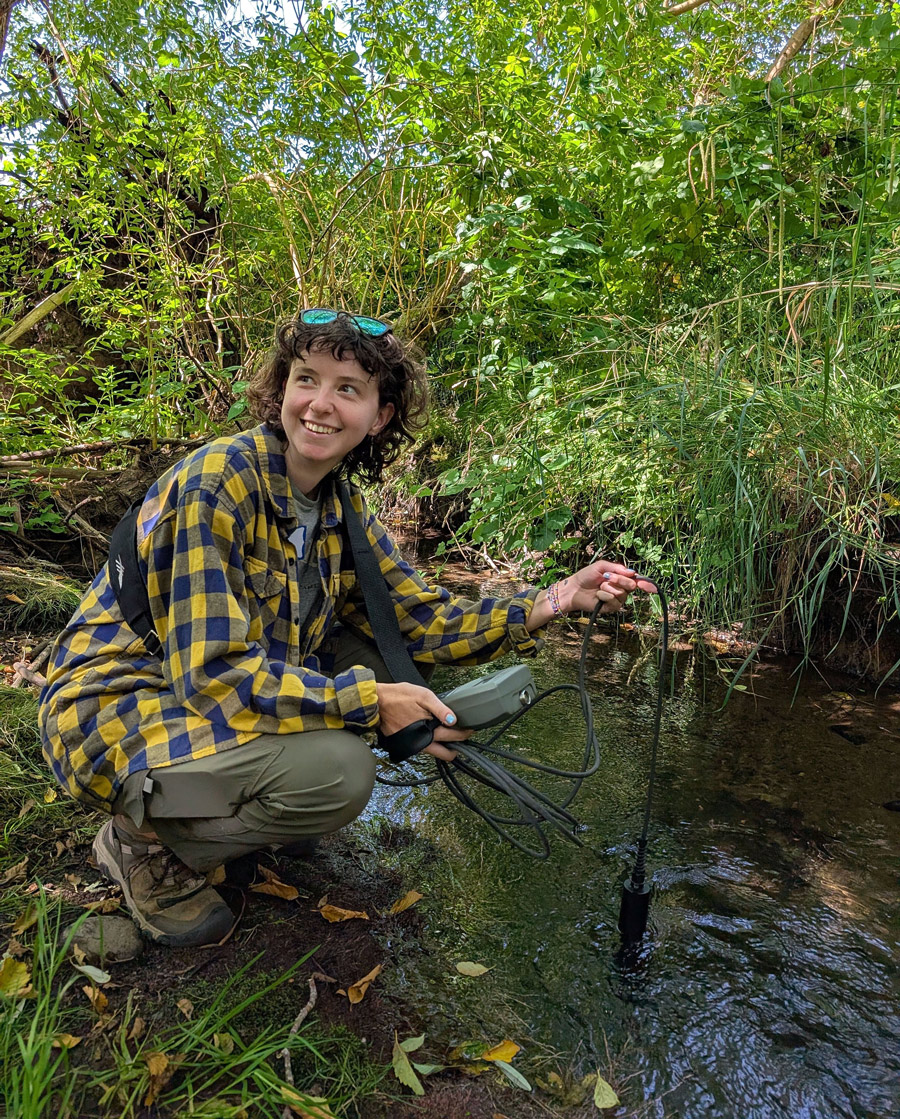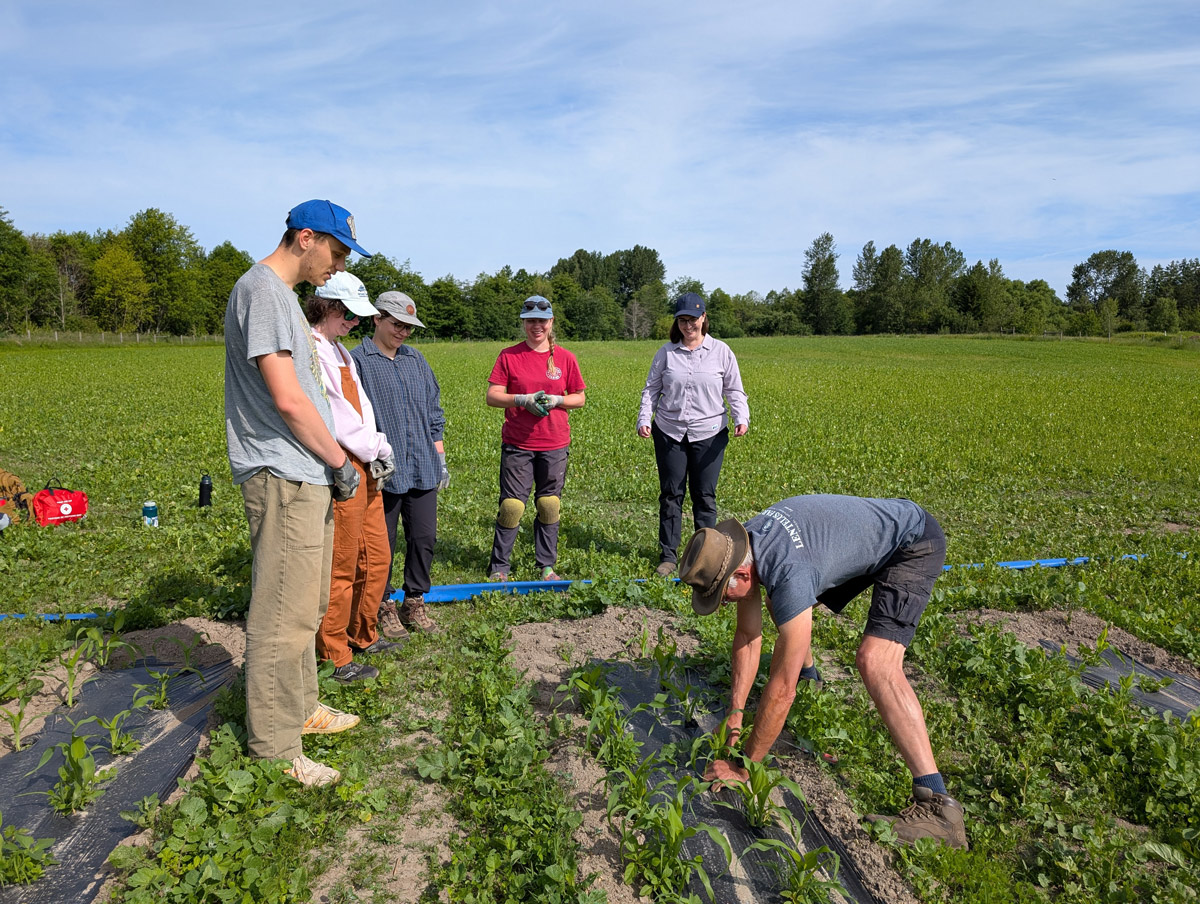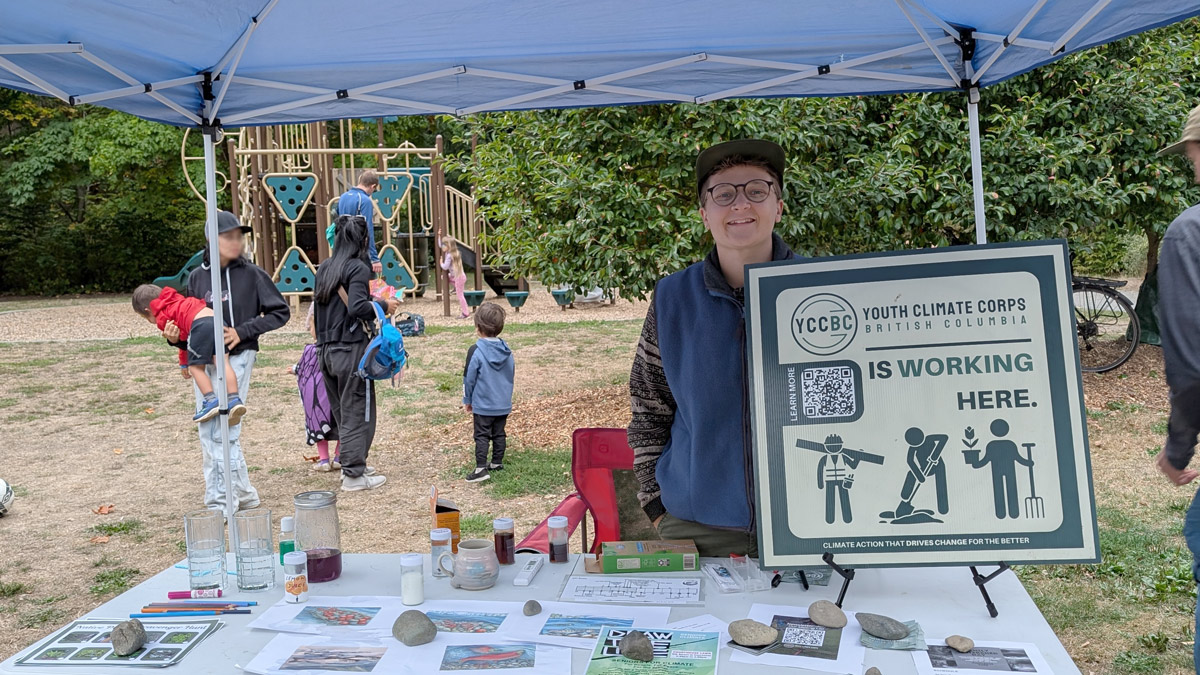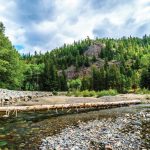A new force for climate action has taken root this past summer in the Comox Valley: the Youth Climate Corps British Columbia.
As part of the broader YCCBC program, young people aged 17-30 work together for four to six months to build professional development skills, scale up local climate action projects, and boost their careers. This program addresses the youth unemployment crisis, builds local resilience, and allows youth to meaningfully contribute to projects that reduce emissions, all while making a living wage. YCCBC Courtenay’s first season showed that investing in young people builds the capacity of local organizations and increases community climate resilience.
The work that our Courtenay team accomplished in its first year shows why the Youth Climate Corps needs to expand across the province.
Created in Nelson, BC in 2020, YCCBC runs programs across the province in the East and West Kootenays, Vernon, Squamish, Vancouver, Golden, Kamloops, Kelowna, Northern Vancouver Island, Hazelton, and Courtenay. The program is highly adaptable depending on the needs and priorities of the communities we work in. Municipalities and partner organizations shape the priorities of each individual program, ensuring that program priorities fit the community’s needs.
This means every YCCBC team’s work looks different. The Squamish team this year joined air-sealing projects, while the team in Vernon helped the city advance its new climate action plan through community engagement at public events. The Courtenay team spent the majority of the season working on local food security and ecological restoration projects, two priorities identified by the City of Courtenay.

Mya monitoring water – Photo by Mikasa-Quaife
Partnering with community
YCCBC Courtenay partnered with LUSH Valley Food Action Society, a local food security and agriculture organization with a mission to support the Comox Valley community in gaining food-systems tools, engaging in resilient local food systems, and establishing equitable access to nourishing food. Every week, we worked in their community gardens, helped lead fruit picking crews, and participated in gleaning at local farms. This partnership gives our team’s community climate action mobilizers important agricultural skills: plant identification and organic growing practices, managing volunteer fruit pickers, and learning how to effectively install an irrigation system at the community garden.
Our local group also developed a key partnership with the Lake Trail Community Education Society in West Courtenay, a non-profit organization that operates another community garden, plus after-school programs, and weekly community dinners in the garden. YCCBC’s crews are developing a new “commons corner” in the garden into an area where students and neighbours can learn about native plants, urban agriculture, and composting. Helping at their weekly potluck dinners gives us the opportunity to grow, harvest, cook, and serve food to community members while fostering new relationships and alliances.
Environmental actionis a key antidote toclimate anxiety.
Ecological restoration work was a significant part of our focus this summer. With Project Watershed, we helped with habitat restoration projects at the Kus-kus-sum site on the Courtenay River, as well as at the Courtenay Airpark at the K’omoks Estuary. This work has turned two extremely degraded areas into thriving, functional ecosystems that provide habitat for many species, as well as ecosystem services such as flood control, water filtration, and erosion protection.
Our team monitors local stream health during summer low flows and the first fall flush to capture critical seasonal conditions. We collect data on five key parameters: water temperature, turbidity, pH, specific conductivity, and dissolved oxygen. This work helps Project Watershed establish a stream health baseline, alert authorities to any risks the watershed may be facing, and support data-driven decision making in our local watersheds.
Monitoring Morrison Creek
In 2023, a mix of funding from the Comox Valley Land Trust, BC Parks Foundation, and a crowdfunding campaign allowed the land in the Morrison Creek headwaters to be purchased and protected in perpetuity. In partnership with the BC Parks Foundation, our team monitors the Morrison Creek headwaters every week. Since May, our team has been collating citizen science data to establish an ecological baseline that will inform future conservation projects. We deploy trail cams and audio recording units to track the biodiversity of plants and invertebrates in the site.
The work that our Courtenay team accomplished in its first year shows why the Youth Climate Corps needs to expand across the province and the rest of the country. BC is facing the worst youth unemployment rate in decades, and it’s only getting worse. Currently, BC has the second-highest rate of youth unemployment in the country – a staggering 16.6%. The national rate is not much better at 14.4%.

Learning from farmer Willem at Lentelus Farm. Photo by Maddie-Turene
Healing through action
A 2023 poll by Abacus Data shows that the majority of Canadians support the Youth Climate Corps concept, and 65% of young people would consider joining a program like this if given the opportunity. Meanwhile, climate anxiety levels in this age group are increasing. A Lancet study of 10,000 people aged 16-25 found the cohort is vulnerable to anxiety, with 60% saying they’re “very” or “extremely” worried about climate change. Environmental action is a key antidote to climate anxiety, and a compelling way for people to contribute to a greater cause while feeling both empowered and connected.
An expanded Youth Climate Corps could lead to a reduction in unemployment and transform climate anxiety into real action. The Courtenay team demonstrates that when young people are given paid, meaningful opportunities to work in the climate-action space, their careers, communities, and ecosystems benefit greatly.
Given the challenges of the climate crisis ahead of us, the case for expanding YCCBC is clear. The program can help lead us towards a just, resilient, and climate-adaptive future, while giving young people the tools to thrive.
Maddie Turenne is the Courtenay Program Coordinator for Youth Climate Corps BC.




